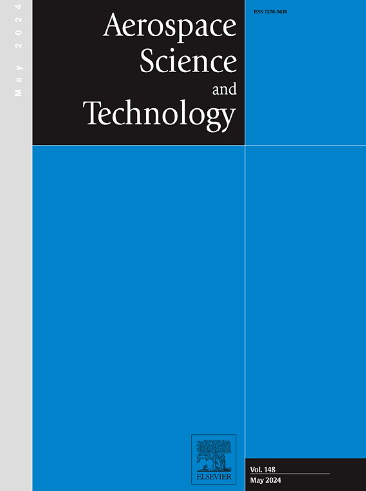基于自适应非单调方法的自由飞行空间机器人随机系统抗饱和时间控制
IF 5
1区 工程技术
Q1 ENGINEERING, AEROSPACE
引用次数: 0
摘要
针对存在系统不确定性、外部干扰、输入饱和和输出约束的自由飞行空间机器人,提出了一种抗饱和规定时间控制方案。首先,控制方案基于新构建的随机模型,引入随机神经网络(snn)来近似包含系统不确定性和外部干扰的集总随机因子。随后,提出了一种新的自适应非单调规定时间函数,将输入饱和作为自适应变量来动态调整约束边界。这种集成使约束边界能够自适应地以非单调的方式扩展以响应输入饱和的发生。并将约束边界设计为隧道型,以防止超调。所提出的控制方案保证了所有闭环信号在概率上是半全局一致最终有界的,跟踪误差稳定在规定时间内。最后,仿真结果验证了该方案的有效性和优越性。本文章由计算机程序翻译,如有差异,请以英文原文为准。
Anti-saturation prescribed-time control for stochastic systems of free-flying space robots using a self-adapting non-monotonic approach
This paper proposes an anti-saturation prescribed-time control scheme for free-flying space robots (FFSRs) subject to system uncertainties, external disturbances, input saturation, and output constraint. Initially, the control scheme is developed based on a newly constructed stochastic model, introducing stochastic neural networks (SNNs) to approximate the lumped stochastic factor that encompasses system uncertainties and external disturbances. Subsequently, a novel self-adapting non-monotonic prescribed-time function is proposed, integrating input saturation as an adaptive variable to dynamically adjust the constraint boundaries. This integration enables the constraint boundaries to adaptively expand in a non-monotonic manner in response to the occurrence of input saturation. Moreover, the constraint boundaries are designed as tunnel-shaped to prevent overshoot. The proposed control scheme ensures that all closed-loop signals are semi-globally uniformly ultimately bounded in probability, with the tracking error stabilized within a prescribed time. Finally, simulation results validate the effectiveness and superiority of the proposed scheme.
求助全文
通过发布文献求助,成功后即可免费获取论文全文。
去求助
来源期刊

Aerospace Science and Technology
工程技术-工程:宇航
CiteScore
10.30
自引率
28.60%
发文量
654
审稿时长
54 days
期刊介绍:
Aerospace Science and Technology publishes articles of outstanding scientific quality. Each article is reviewed by two referees. The journal welcomes papers from a wide range of countries. This journal publishes original papers, review articles and short communications related to all fields of aerospace research, fundamental and applied, potential applications of which are clearly related to:
• The design and the manufacture of aircraft, helicopters, missiles, launchers and satellites
• The control of their environment
• The study of various systems they are involved in, as supports or as targets.
Authors are invited to submit papers on new advances in the following topics to aerospace applications:
• Fluid dynamics
• Energetics and propulsion
• Materials and structures
• Flight mechanics
• Navigation, guidance and control
• Acoustics
• Optics
• Electromagnetism and radar
• Signal and image processing
• Information processing
• Data fusion
• Decision aid
• Human behaviour
• Robotics and intelligent systems
• Complex system engineering.
Etc.
 求助内容:
求助内容: 应助结果提醒方式:
应助结果提醒方式:


